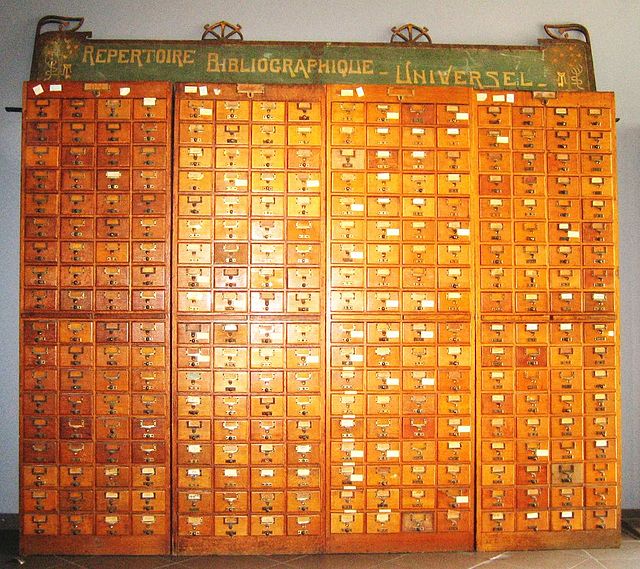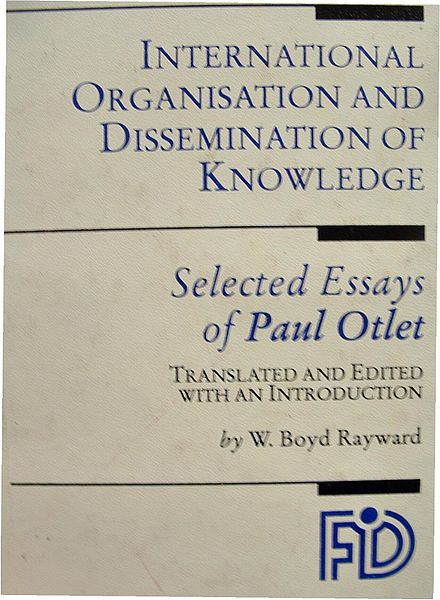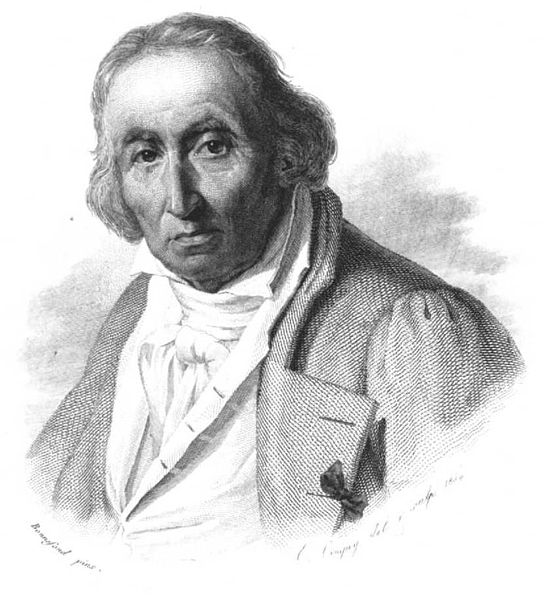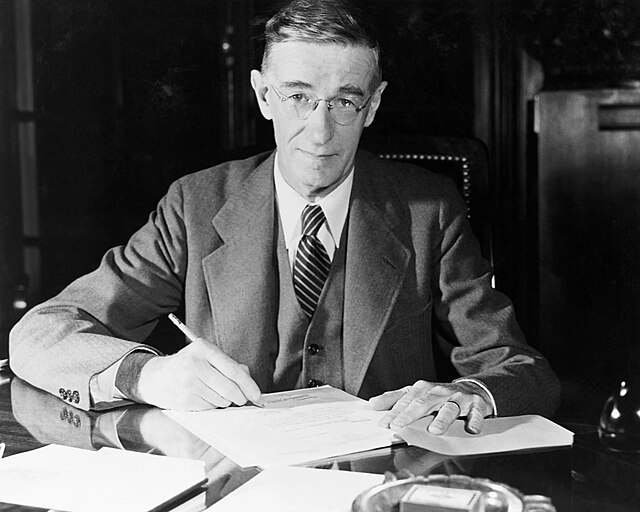Paul Marie Ghislain Otlet was a Belgian author, entrepreneur, lawyer and peace activist; predicting the arrival of the internet before World War II, he is among those considered to be the father of information science, a field he called "documentation". Otlet created the Universal Decimal Classification, which would later become a faceted classification. Otlet was responsible for the development of an early information retrieval tool, the "Repertoire Bibliographique Universel" (RBU) which utilized 3x5 inch index cards, used commonly in library catalogs around the world. Otlet wrote numerous essays on how to collect and organize the world's knowledge, culminating in two books, the Traité de Documentation (1934) and Monde: Essai d'universalisme (1935).
Otlet in 1937
The Hotel Otlet, Paul Otlet's mansion, designed by Octave van Rysselberghe in 1894
Répertoire Bibliographique Universel
Front page of the book International Organisation and Dissemination of Knowledge: Selected Essays of Paul Otlet, edited by W. Boyd Rayward
Information science is an academic field which is primarily concerned with analysis, collection, classification, manipulation, storage, retrieval, movement, dissemination, and protection of information. Practitioners within and outside the field study the application and the usage of knowledge in organizations in addition to the interaction between people, organizations, and any existing information systems with the aim of creating, replacing, improving, or understanding the information systems.
Gottfried Wilhelm Leibniz, a German polymath who wrote primarily in Latin and French. His fields of study were Metaphysics, Mathematics, Theodicy.
Joseph Marie Jacquard
Vannevar Bush, a famous information scientist, c. 1940–1944







